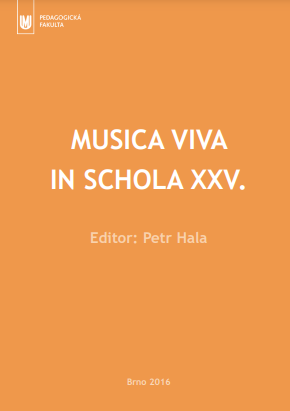Hudební vzdělávání od konce 19. století do 90. let 20. století se zaměřením na poslech hudby
Music education from the late 19th century to the 1990s with a focus on listening to music
Author(s): Pavel Šuranský
Subject(s): Education, Music, Aesthetics, History of Education, 19th Century, Sociology of Art
Published by: Masarykova univerzita nakladatelství
Keywords: music education; teacher; sociology; cognitive-social learning, aesthetic sensibilities; musical work; composer;
Summary/Abstract: Teaching of Music education was right from the beginning of music development characterized by the different functions in the perception of the music, which has, of course, changed significantly during the evolution of music. Music education is not just singing, the significant part of a comprehensive music education includes also the ability to listen to the music. At the time listening to the music works of art emotionally affected human emotional relationships between people, towards society and nation. The basic set of recommended songs of composers – home and international – has not changed much during almost whole century, as has not the main goal of music education: teaching students to establish diverse contacts with the music, so they would be able to accept and understand music as a special means of understanding the world. Lack of teaching children to “classical music” and our failure to awaken a direct interest in music, must lead to the fact that the current general music education almost does not contribute to the education of future listeners of artificial music.
Book: Musica viva in schola XXV
- Page Range: 95-102
- Page Count: 7
- Publication Year: 2016
- Language: Czech
- Content File-PDF

